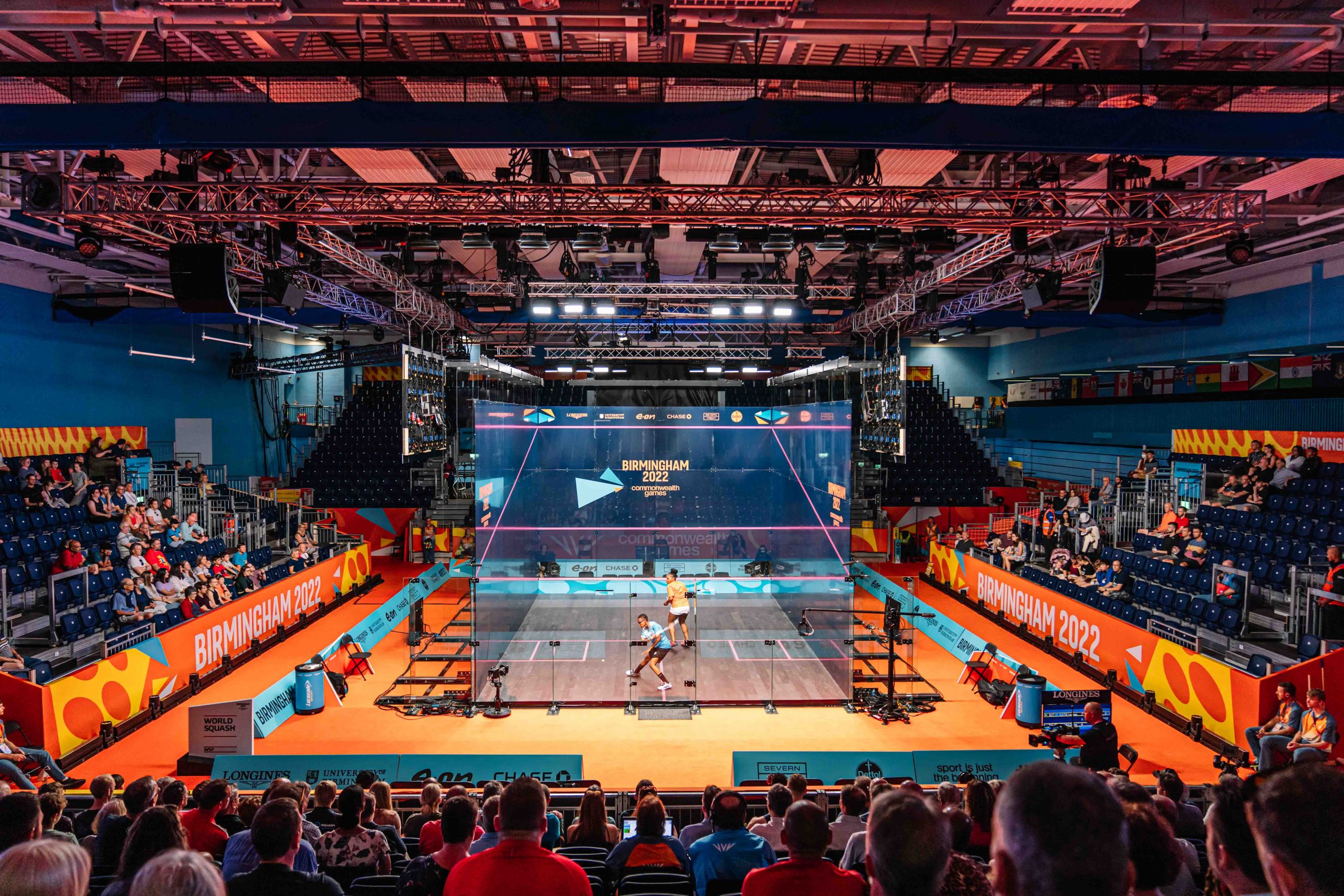
Squash’s latest date with Olympic destiny is potentially just six months away – and it seems our sport’s highest authorities are changing their approach from the failed campaigns of the past.
The International Olympic Committee (IOC) is expected to announce the decision on adding sports to the programme for the 2028 Los Angeles Games at its 140th Session in Mumbai in September or October.
It’s the LA organising committee who will make the call on introducing new sports – or not – at the Games, before the IOC rubberstamps any decision. LA 2028 failed to respond to a Squash Mad enquiry on a date when this decision will occur.
So here’s what we know at this stage:
- The World Squash Federation (WSF), supported by the PSA and US Squash, made squash’s bid for inclusion on August 8 last year, followed up by a presentation in September
- Squash is up against eight other sports – cricket, motorsport, karate, baseball/softball, lacrosse, breakdancing, kickboxing and flag football
- The IOC is not obliged to add any additional disciplines to its core sports programme for LA 2028
- LA 2028 has a cap of 10,500 athletes for the Games to reduce cost and complexity, which it’s reportedly close to already, even without the addition of further disciplines
- The inclusion of boxing, weightlifting and modern pentathlon is currently in some doubt
With so many variables, assessing squash’s chances at this stage is tricky. But what has been noticeable is the lack of noise.
Previous campaigns have featured slick videos (2024, 2020, 2016, 2012) and global awareness-raising tours by the likes of Nicol David, Ramy Ashour and Camille Serme.
For now, we haven’t seen any expensive marketing or big-name squash players announcing their support for squash’s bid for inclusion.
By contrast, this is the campaign to win hearts and minds for the 2028 decision by one of squash’s rivals, flag football.
The slickly-produced video, featuring an array of NFL players and other sporting legends, was shown during the coverage of this year’s Superbowl, just after a pre-match performance from Rihanna. The Superbowl had an estimated global viewing audience of 113 million.
However, squash’s relative lack of razzmatazz may be no bad thing. That’s certainly the view of Andrew Shelley, the former WSF chief executive (now director of the Squash Library) who was involved with four bids for Olympic inclusion during his tenure.
He says the WSF’s approach shows they are learning the lessons of the past – specifically, that success comes through influencing the key decision-makers within the IOC corridors of power, and to a far lesser extent through the aesthetic, attention-grabbing brilliance of the bid itself.
“The WSF don’t seem to be interested in galvanising the sport this time round and I can understand that,” Shelley told Squash Mad. “The failed bids in 2013 and 2020 got squash a lot of coverage and did a lot of good for the sport in countries where we visited and campaigned. But all that doesn’t actually have any effect on the Olympic bid.
“You can point to ongoing activities and initiatives in your bid documents, but actually doing that makes no difference at all.”
Shelley’s inside knowledge of the process is unrivalled in squash. His painful memories of past failed bids are documented brilliantly on his Squash Library website. The most recent campaign, for Paris 2024, highlighted for him the relative futility of focusing principally on the bid itself.
“The WSF and PSA bid in partnership for Paris which was essential because the PSA had great technical production assets to work with the appointed agency,” he recalls. “It was unanimously reported to us by everybody involved that ours was the best bid. We’d got the bidding right – but we hadn’t got the influence right.
“Everybody recognises now that you’re not going to get in simply by delivering a formal bid. You have to do that, of course, but the key is to have influencers supporting the bid at the very top of the IOC and their partners.
“If, between them, the WSF and PSA have managed to influence the IOC executive board – an inner circle of two or three people – then we’ve got a great chance. But just fulfilling the criteria and presenting it nicely is not going to get you in. It’s a club – you have to be able to influence the key people.
“Getting individual IOC members [as opposed to the executive board] to support you – which is what we’ve done before – isn’t enough. They don’t carry the weight of the inner circle. That’s who we have to get to.”
WSF president Zena Wooldridge and CEO William Louise-Marie, along with PSA CEO Alex Gough and US Squash CEO Kevin Klipstein, are among the individuals tasked with piercing that inner circle.
Klipstein told Squash Mad: “I’m not able to talk too much about the process at this stage. What I can tell you is that WSF, PSA and US Squash have collaborated really well on putting the best foot forward for squash in the context of LA 2028’s process.”
The squash world waits – once again – with bated breath.















 Phone: (800) 737. 6040
Phone: (800) 737. 6040 Fax: (800) 825 5558
Fax: (800) 825 5558 Website:
Website:  Email:
Email: 






